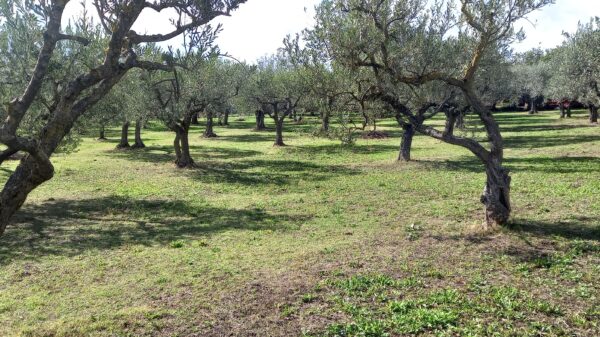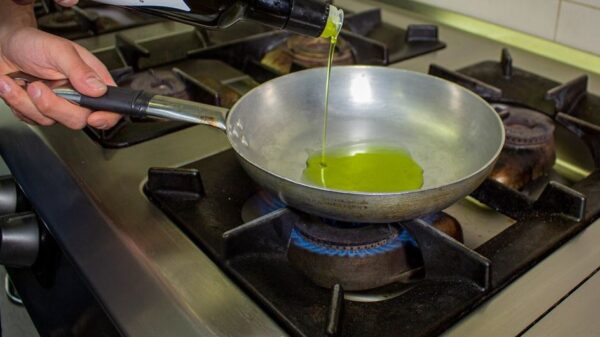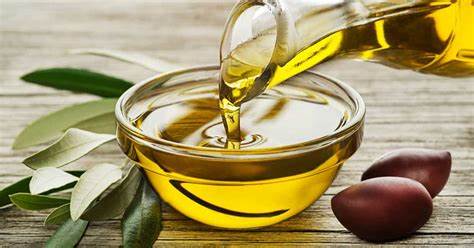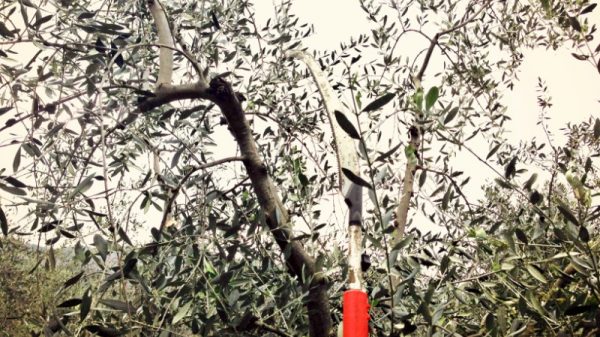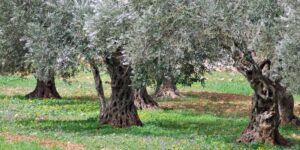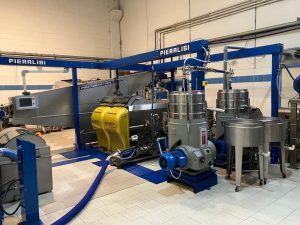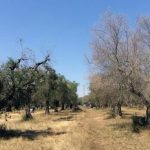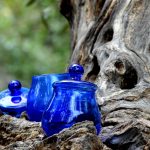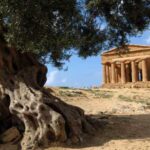After the desperate cry of George Panels which he urged “Let's wake up!” to avoid the dramatic end of Italian olive growing, here is now the appeal of Barbara Alfei (in the picture): “Neurons in ON position!”
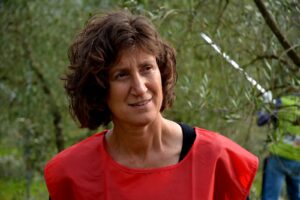 Opening your eyes is the first step, underlines the panel leader of Amap Marche, but then you have to "activate" the neurons, ask yourself questions, then study and delve deeper to find the answers. “There are no miraculous solutions to the profound crisis facing Italian olive growing – he explains – but concrete proposals, based on study, knowledge, science and experience. The olive tree - he adds - is a peculiar species, it does not necessarily adapt to the solutions adopted in viticulture and fruit growing... The olive tree is the OLIVE TREE, with its physiology, its vegetative and productive behaviour, its needs, which must be known and respected. Furthermore, let's not forget that it is an intelligent plant, which has the same number of chromosomes as the human race, i.e. 46, which is used to suffering, waits for time to pass, tolerates many adversities, of which the main one is man ( cit. Giorgio Pannelli). It is also an evergreen plant, alive and alert throughout the year, it is loved: it is difficult to love a vine or a peach tree in the same way in the winter! And it has a therapeutic power that others don't have, think of the feeling of well-being you feel when embracing a centuries-old olive tree!”
Opening your eyes is the first step, underlines the panel leader of Amap Marche, but then you have to "activate" the neurons, ask yourself questions, then study and delve deeper to find the answers. “There are no miraculous solutions to the profound crisis facing Italian olive growing – he explains – but concrete proposals, based on study, knowledge, science and experience. The olive tree - he adds - is a peculiar species, it does not necessarily adapt to the solutions adopted in viticulture and fruit growing... The olive tree is the OLIVE TREE, with its physiology, its vegetative and productive behaviour, its needs, which must be known and respected. Furthermore, let's not forget that it is an intelligent plant, which has the same number of chromosomes as the human race, i.e. 46, which is used to suffering, waits for time to pass, tolerates many adversities, of which the main one is man ( cit. Giorgio Pannelli). It is also an evergreen plant, alive and alert throughout the year, it is loved: it is difficult to love a vine or a peach tree in the same way in the winter! And it has a therapeutic power that others don't have, think of the feeling of well-being you feel when embracing a centuries-old olive tree!”
The concrete proposal on how to manage and recover traditional olive groves was shouted out loud by Giorgio Pannelli on OlivoNews: polyconic vase without any ifs or buts, land management, protection of the soil and the environment.
Barbara Alfei, what other solutions to adopt?
“The recovery and valorization of olive biodiversity, so rich and varied in Italy as in no other country in the world. It is a treasure, which we must safeguard and which we risk losing by running after miraculous proposals."
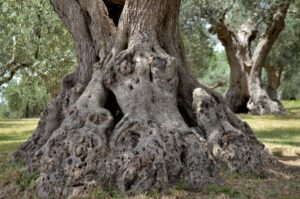 Are you referring to high density, proposed as an opportunity? The message that the supporters of this model send, however, is clear: produce a lot in the first years, save on manpower, facilitate harvesting by using straddle machines!
Are you referring to high density, proposed as an opportunity? The message that the supporters of this model send, however, is clear: produce a lot in the first years, save on manpower, facilitate harvesting by using straddle machines!
“I repeat, turn on your neurons, let's ask ourselves some questions. How much does the system cost? Purchase of 2000 plants instead of 300, piling, irrigation system... and then the management costs.
How long does the implant last? When it goes haywire, because the plants will necessarily compete and the economic life of the olive grove comes to an end, what will we do? Will we uproot (and how much will it cost?) and replant? Or we will leave the problems to those who come after, who will not be able to handle them. And once again the fate will be abandonment, of a forest in this case. And again, the varieties: how many are there that apparently work? Where they come from? Do they adapt to all climates and all terrains? And then, do the Italian ones proposed as an alternative to the usual ones really work? How much water should we give? How much fertilizer? How many lands would be suitable in terms of composition and orography?
Is the system tested enough? Who will have to verify, the olive growers at their own expense or the research institutes? And above all... what will happen to biodiversity? Do we want to relegate it to marginal areas, steep and inaccessible terrain, terraces, mountain areas?
And if we drastically reduce the number of varieties, planting only a few and always the same ones throughout Italy, in spite of environmental compatibility, which becomes increasingly important in the era of climate change, what will happen when the "pincopallino" virus or bacterium arrives, which ones will be sensitive?
And then, what oil do we intend to produce? A generic extra virgin olive oil, which in other areas of the world will always be able to produce at more competitive prices than us?
And the oil... how much does it have to cost? An unfortunate year like this has brought a considerable increase in the price of olives and oil. And luckily! But are negative years necessary to restore the right value to the oil? We cannot continue to run after the price, attempting to drastically reduce production costs, encountering a thousand problems, including the exploitation of the soil, of the increasingly precious water resource, the impact of chemistry for fertilization and phytosanitary treatments, the scarce respect for the environment, in an era in which climate change makes us reflect and we are going back on many choices of the past, including cultural intensification".
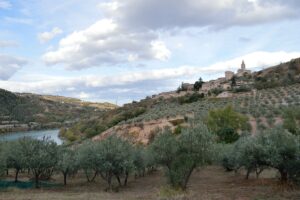 So, what does he propose?
So, what does he propose?
Let's restore dignity to olive growing in a few steps:
– We know the olive tree, inside and out.
– We study, we acquire skills throughout the supply chain, or we rely on professionals and not on…. like grandfather did.
– Let's save biodiversity and respect the territoriality of varieties, we focus on native varieties, with their tolerances and susceptibilities: there is no such thing as a "superhero" variety, suitable for all climates, soils and needs.
– We rationally design the new olive groves, without relying on nurserymen for varietal choices.
– We produce an oil that goes beyond generic quality (compliance with the chemical and sensorial requirements for the extra virgin category), which has a strong identity.
– Let's maintain the traditional olive groves, the historic plants, capable of generating beauty, of characterizing the territories, of providing well-being, of creating work for motivated and prepared young people.
– We enhance the oil, enriching it with everything that revolves around the concept of terroir: history, art, culture, traditions, territory, monumental olive trees, typical recipes and, at the base of everything, the producer, the true protagonist, the one who gives us puts your face, professionalism and heart.
– And above all, let's be a team!!
Challenging challenges, don't you think?
“Important synergies are needed: olive groves will not be abandoned if we demonstrate to young people that income can also be produced from the olive tree, if management and pruning are done in a rational manner, if the environment and therefore the health of those who live there are safeguarded , if the oil is valorised, selling it at a price that is profitable; on the other hand, consumers must understand that quality and typical oil has such a sensorial, nutritional and health value that it cannot be replaced with other fats, and they must be willing to pay the right price for it. It is necessary to network in local communities to support the income of producers and processors, purchasing high quality oil at a profitable price, thus allowing, all together, the protection of the territory, ensuring that young people remain on site, taking care, with their entrepreneurial ability, maintenance and enhancement of the olive groves and the related territory, I am thinking of dry stone walls, historic homes, centuries-old olive trees, agricultural landscape, local culture, etc.
In this sense, the law on oil tourism offers an important contribution to the valorisation not only of the olive-growing heritage, but also of the history and culture of the territories. This is why with AMAP we have always supported monovarietals with the National Exhibition: it is the natural path of a product obtained from a specific variety of that territory, indigenous, with its peculiar properties that enhance its identity and uniqueness.
In short, to close... There are no right or wrong choices regardless. The appeal is: let's turn on the neurons! Let us listen to advice, let us be open to all proposals, let us evaluate all possible choices, weighing the pros and cons, not only in the immediate future, but also in the short and long term, and then let us consciously choose our path, willing to defend the decisions made and fully assume risks and responsibilities."
Browse for free l'Olivo News click , here

